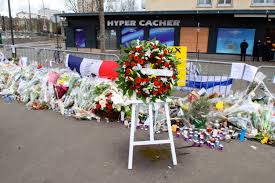Attacks like the ones that took place in Paris last November where 129 people died, or Orlando where currently 50 people were murdered are fortunately extremely rare. But the fact that it’s happened, and that our terrorist enemies are promising more, should remind us that we must be vigilant, and be prepared to react if we find ourselves in a mass panic situation.
There is a lot of psychological research surrounding crowd behavior and panic reactions. It’s worth looking at them now, it will help you mentally prepare for a life-threatening terrorist or criminal event.
Be prepared
Many survivors of the Paris attacks mistook the gunfire for fireworks. This is typical, we try and justify events to fit the narrative in our heads. Gun shots don’t fit with a gig, so your mind seeks a rational explanation. Unless you are familiar with gunshots, you look for another cause. This delays your response time. The lesson from this is you must try to respond to the events around you, not what’s in your head.
Delay is your enemy. Processing what’s going on and working out how to deal with it all takes time. Plan ahead for eventualities. Always check where the emergency exits are located. Carry a small flashlight — everywhere. Train yourself to plan an exit route EVERYWHERE you go.
ALWAYS, ALWAYS, ALWAYS check for an exit in every building you visit. Make it a habit. Whether it’s the supermarket, the ball game, church, the mall, the movies, or a show, you MUST have an escape route in mind that you have memorized so you could crawl there. Look for solid objects to duck behind. (Cars aren’t as bulletproof as concrete but they’ll do. Try and crouch behind the tires to protect your legs.)
The aim is to make yourself as small a target as possible, ideally out of sight. Ducking out of sight reduces your risk of being targeted deliberately, or being hit by someone spraying the room with bullets.
Other people and the herd instinct
The vast majority of people will be too confused to do anything during an attack. John Leach, survival psychologist and military survival instructor. has looked at life-threatening situations around the world and has found that only 15% of people will respond in a way that helps them survive. Up to 75% will just be too bewildered by what is happening around them to react at all. The other 10% will react in ways that reduce their chances of survival and get in the way of other people, he says.
Acting decisively might make survival more likely. But it’s also human nature to wait for other people to act first. In a classic experiment, psychologists put people in a room and filled it with smoke to see how they would react. People who were on their own were more likely to take action than those who were with other people. BBC
The UK government’s advice, in its document on “dynamic lockdowns”, is to run if there is a safe route out. But if there is no safe way to do this it advises hiding.
In extreme situations like at the Bataclan club in Paries where there was no place to hide, many survivors made it by “playing dead.” This is tough. Mass murderers are looking for movement and eyes, breathing, moaning and twitching all register subliminally. Practice. And practice with your kids. Make it a game but let them learn the skill. Give them a word that makes them play dead. (I know it sounds like training a dog, and it is a little like that. But it could be useful one day.)
Fighting back
You have to be very sure or very desperate to do this. Military personnel might pull it off, like they did in France when four passengers subdued a lone gunman on a train, but regular citizens should run. However, ISIS are not interested in hostages. They want a body count. It’s wise to have a least some basic fighting knowledge if you’re cornered.

Escaped?
Get as far away as possible, walk behind as much hard, high cover as possible and go to the nearest authority figures for help. It can be dangerous to join big groups nearby or to take public transport. Always assume that there’s going to be a secondary device or attack. Take advice from police officers or other officials, as they may have better knowledge of the situation.
Help each other and work together
The chances of being caught up in a major attack are still low. But if it does happen, co-operating with others can increase people’s chance of survival, says Chris Cocking, social psychologist and expert in crowd behaviour.
After the 7/7 London attacks, Cocking helped interview dozens of people involved and concluded that the quickest and most efficient way for a group to evacuate is for people to work together.
This is the only way to avoid situations such as a crowd getting jammed at a fire escape. Cocking says that most people are likely to try to help each other even in extreme situations. “There’s an assumption that it’s everybody for themselves but that just doesn’t happen,” he says. BBC